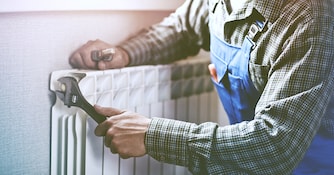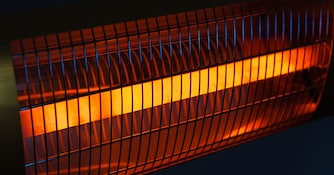
15 Ways to Save Energy in Winter
Up where I'm from, when the cicadas start singing, we start the countdown to Fall and Winter. Wherever you're from, you probably have your own way of realizing that those long summer days will soon be history.
Before you know it, heating your home and heating bills will become a part of everyday life. You start looking for ways to cut heating costs.
Look no further. We've compiled a list of how to save energy in winter.
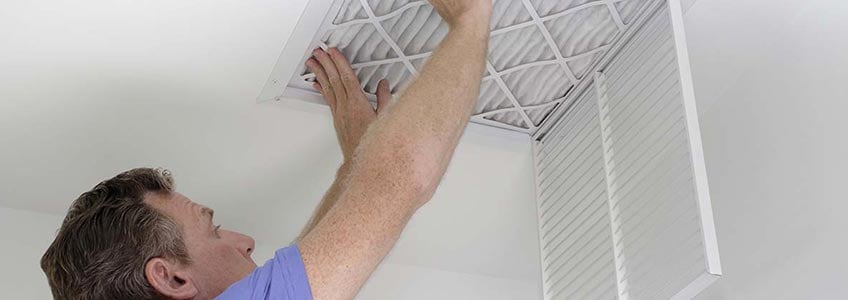
Change Your Filters
Changing your air filter is the easiest and cheapest way to save on energy bills almost instantly.
While you don’t see them everyday, filters keep the air in your home clean by preventing potentially dangerous particles from floating around. However, the more particles they trap, the less efficient they become, causing the blower motor to work much harder and keeping the heated air from circulating freely.
Some air filters must be cleaned or replaced more often than others. For example, a household of six people with pets would need to change filters more often than one with just two people and no pets.
As a guideline, a small household should change them at least every 3-4 months and larger homes with pets at least 1-2 months. If you or a family member suffers from allergies, changing the air filter every month is recommended.
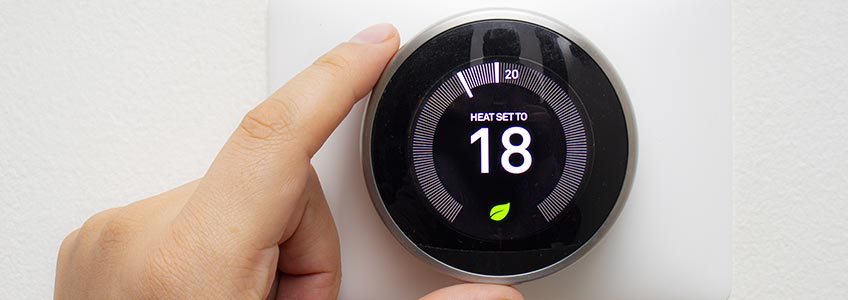
Install a Programmable Thermostat
If you don't have a smart thermostat, you might as well be burning money in the furnace. Traditional thermostats turn on and off whether you're home or not--what's the point of heating an empty house?
Smart thermostats like the ecobee and Nest can learn your routine and adjust the temperature to your schedule, preferences, and even location in the house. They can also be programmed wirelessly from your smartphone, tablet, or computer for incredible home comfort flexibility and savings. You'll be more comfortable and a little richer.
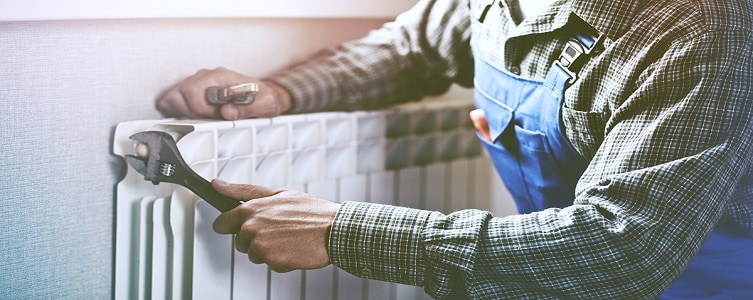
Get a Heating Tune-Up
Unless your boiler or furnace is fresh out of the box, it’s probably been used quite a bit already.
It could be that everything is just fine, but if something isn’t quite right, it’s better to find that out and get it fixed now than when the weather is colder and you’re much more dependent on your heating equipment. It's also crucial to make sure that there are no toxic carbon monoxide leaks in your system.
Plus, it might be easier to schedule a technician since it’s not quite the busy season for fixing broken heating equipment. Even if there isn't anything seriously wrong, an annual cleaning maintains the efficiency of your unit, which will help you save energy and money.
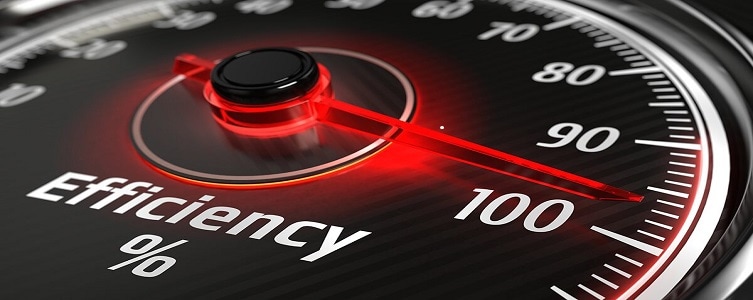
Find ENERGY STAR® Rated Products
When you’re looking to replace or buy a new appliance, it can be difficult to determine among the many different products available which ones can help you reach your energy saving goals. That’s where ENERGY STAR comes in.
ENERGY STAR is a program that certifies products as meeting government standards for energy efficiency. Not only will ENERGY STAR certifications ensure that you’re buying energy efficient products, but they can often save you money almost immediately by qualifying you for a variety of rebates.

Dress for the Weather
Why waste energy on heat when you already have what it takes to get warm? Try dropping the heat a few degrees and compensating with some warmer clothing, like socks or a sweater. It’s easy, comfortable, and saves you energy and money.
Don’t forget that there are lots of ways you can generate heat inside without upping the thermostat, such as taking a warm shower or cooking a meal. However, never heat up your oven solely for heating purposes, as it can be very dangerous for your health.
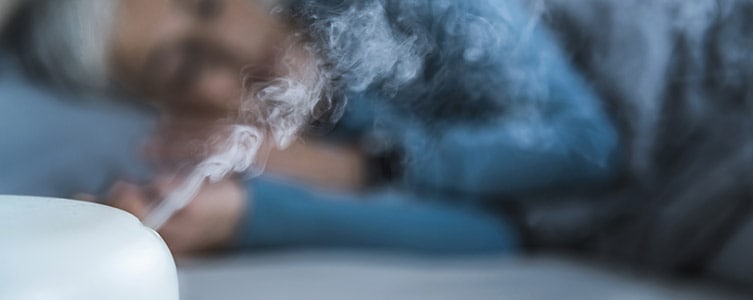
Use a Humidifier
Temperature is not the only thing that keeps you comfortable inside. Without proper humidity control, not only will you drive up your energy costs, but you may be damaging your property and personal health.
It is typical to have much drier air in the winter than in the summer. This can lead to nose or throat irritation, shrinking and cracking of wood floors, doors, or furniture, static shocks, and feeling colder. The colder you feel, the higher you'll set the heat, the more unnecessary energy you'll waste. Plus, the shrinking door and window frames may create gaps and invite even more cold air.
By adding water vapor to dry indoor air during winter, humidifiers can provide health benefits and reduce the need to raise that thermostat. During the summer, you probably complain about the humidity because it makes it feel hotter. Use that to your advantage during winter by installing a humidifier.
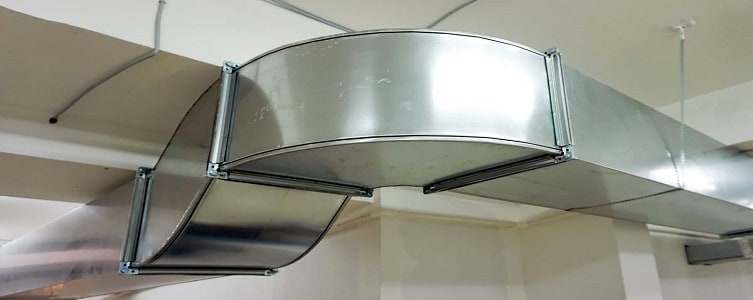
Check Your Ducts/Venting
Haven't checked your ducts since 1996? They could be clogged with dust and filth or have leaks in them, causing your heating system has to work overtime and lose efficiency. And anytime your system loses efficiency, you lose money.
Even more important, you should check vent pipes for leaks, which can cause dangerous pollutants to fill your home, putting you and your family at risk. It's worth the call to have a technician come out and do a professional inspection for peace of mind.
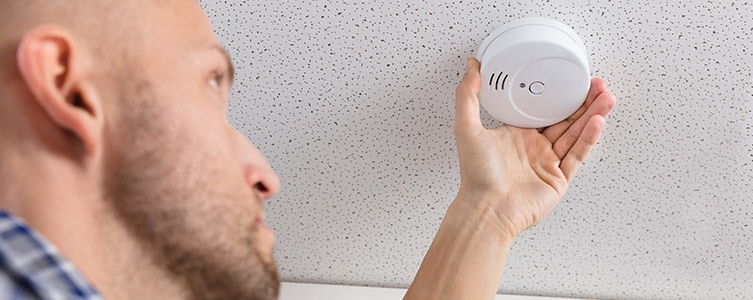
Get a Carbon Monoxide Detector
You cannot put a price on happiness or the peace of mind that comes with protecting your loved ones. That's why it's incredibly important that you purchase a carbon monoxide (CO) detector and alarm if you don’t already have one.
Carbon monoxide is an odorless, tasteless, deadly gas that, on average, claims 430 lives per year in the US. For this reason, 38 states in the US have laws regarding the installation of CO detectors.
CO comes from combustion processes, which commonly take place in heating systems, such as boilers and furnaces. If there’s a problem with your heating equipment, it could lead to a potentially deadly situation, in which case a CO detector could save your life.
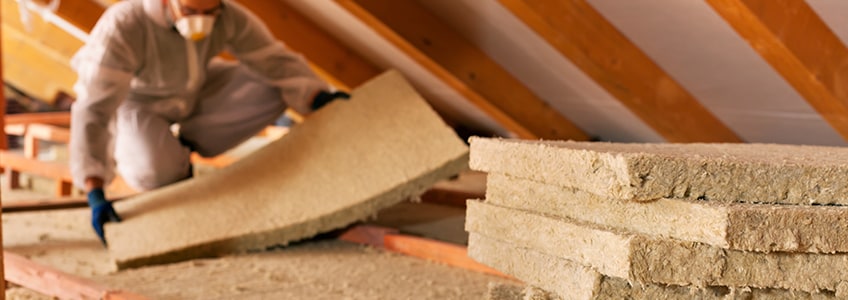
Check Your Insulation
It doesn’t make sense to spend tons of money heating up your house just to have all the heat escape. But if your insulation is old or worn, that's exactly what might be happening.
Before you start heating your house, make sure your insulation is in good shape, especially in the attic, since heat rises and will try to leave through the top of the house.
If you’re buying new insulation material, make sure to check the R-value. This is the number that will tell you how well a given material prevents heat transfer (i.e., how well it keeps heat inside), and it doesn’t always simply correlate with how thick a material is. Remember, the less heat can escape, the less heat you need to produce.
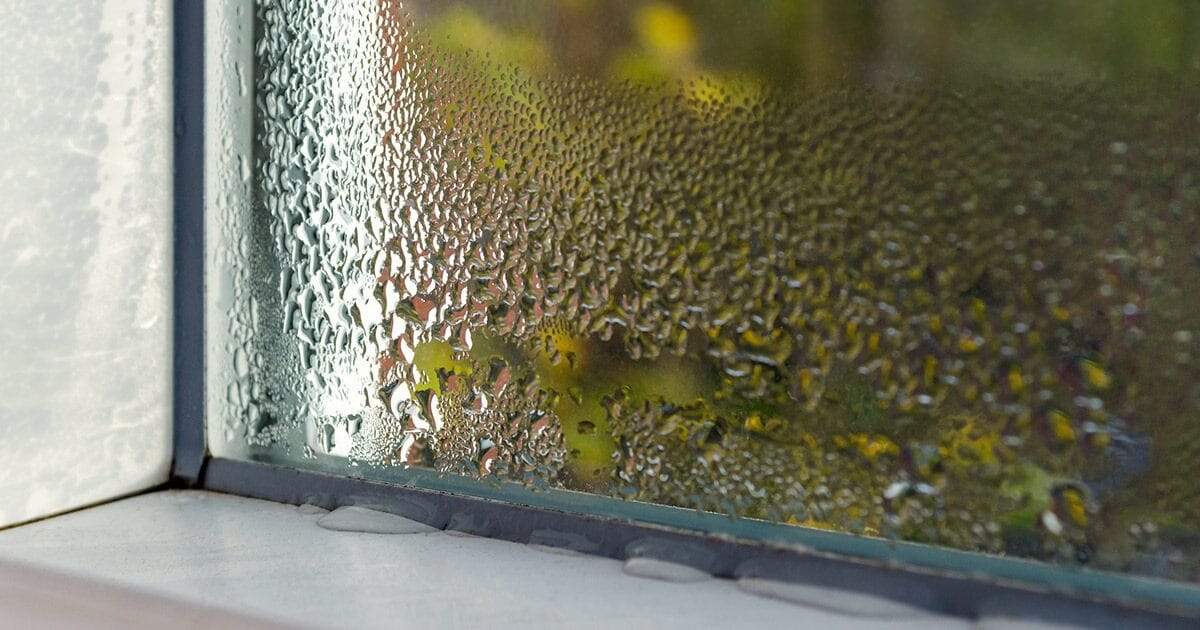
Seal Any Air Leaks
Heat won’t only escape due to lack of insulation material. There could be even easier routes, such as open holes or cracks in your walls, windows, and doors. Not only will you lose heat, but you might feel the cold air coming in, too. The opposite will happen when it’s warmer out and you are cooling your home, so this is important regardless of season or climate.
Scan your walls, especially around the floor, windows, and doors, with a lit candle. You might not feel the draft, but you’ll definitely see the smoke from the candle moving horizontally instead of vertically. Once you find a leak, make sure you seal it up right away with some caulk or weather stripping.

Use Your Blinds
Another common source of heat loss is through your windows. Often, upgrading to double-pane windows can help keep heat inside, but a cheaper and simpler method involves adjusting your blinds.
During the day, leave your blinds open to let the sunlight in and naturally heat up your home. At night, close the blinds to keep your precious heat inside.
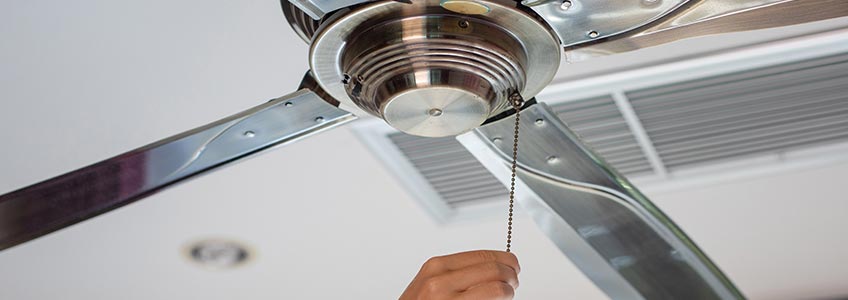
Switch Your Ceiling Fan Settings
Many people think of ceiling fans as a great way to help you cool down when it’s just too hot to deal. However, you can also use ceiling fans to spread heat effectively around your home.
If you set your fan to spin clockwise during winter (i.e., have the leading edge of the blades be lower than the trailing edge), you can pull cool air up from the bottom of the room and push out all the hot air sitting at the top. The hot air will spread around the room, you'll feel warmer, and you won't need to set the thermostat as high.
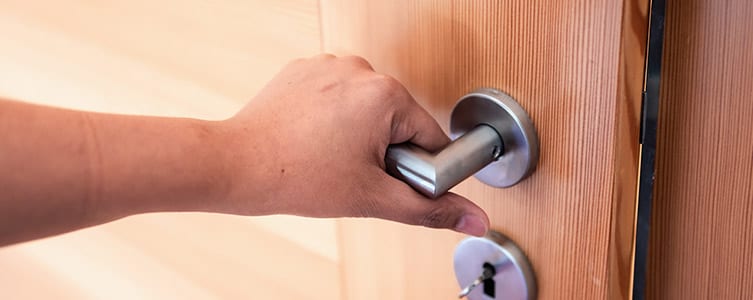
Close off Unused Areas
If you never use that guest room or storage closet, then why would you waste energy keeping it warm? Make sure to close the doors to any rooms that aren’t being used during winter.
By doing so, you'll prevent hot air from dissipating where you don't need it. Instead, it will stay contained in the parts of your home that you actually use. Bottom line: you’ll condition the air more quickly and spend less energy doing it.
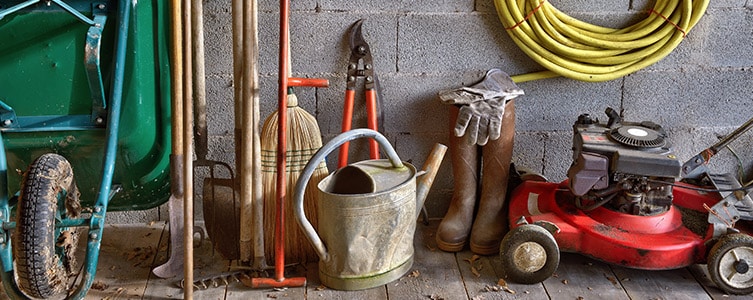
Drain and Store Your Hoses
Water is a very unique liquid for many reasons. This is especially important to remember going into heating season because, unlike most liquids, water expands when it freezes.
That means that if you have any leftover water in your hoses or outdoor pipes, the cold outdoor temperature puts the hoses and pipes at risk. If the water freezes and expands, not only will the exit openings be blocked, potentially causing back-up issues, but the hoses and pipes can burst, as well.
By draining your hoses and storing them away from the cold and precipitation, you can keep yourself from needing to buy new ones in the spring.
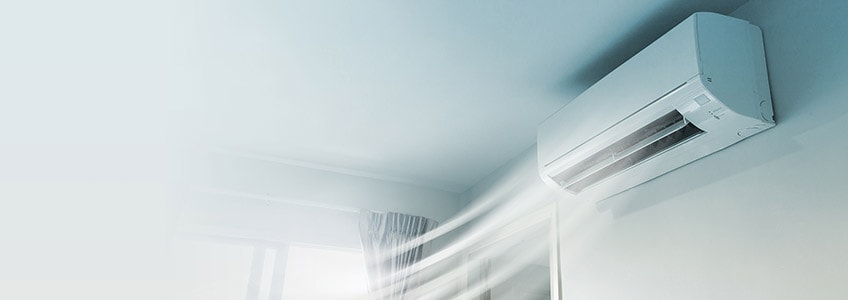
Consider a Heat Pump
Depending on the climate and your current heating system, it may be worth exploring the option of adding a heat pump to your home. Heat pumps are incredibly efficient and can end up saving you a great deal of energy and money.
Since they work by taking heat from the outside air (there’s always some amount of heat, or else it couldn’t get any colder), they can be a complete solution for a home in a place where it’s warm all year round.
In places that experience cold winters, a heat pump paired with a furnace can be an excellent option for saving energy. In this case, the heat pump provides heat until it gets too cold for it to be efficient (around 40 degrees Fahrenheit, depending on various factors), and the furnace takes over. And the big bonus: a heat pump functions as a central air conditioner in the summer, too!
Stay Thrifty and Warm
Hopefully these tips will help make your heating season a little bit more comfortable. It’s always best to stay a step ahead of the game, and there’s no better way to do that than to start preparing now for the cooler months ahead.
Believe me – they’ll come sooner than you think! For more information on energy-efficient heating equipment, speak with the experts here at eComfort.com.


